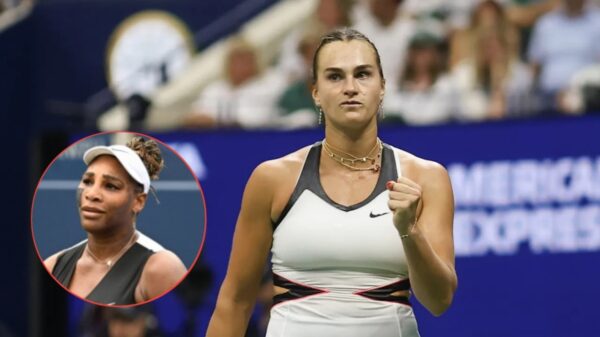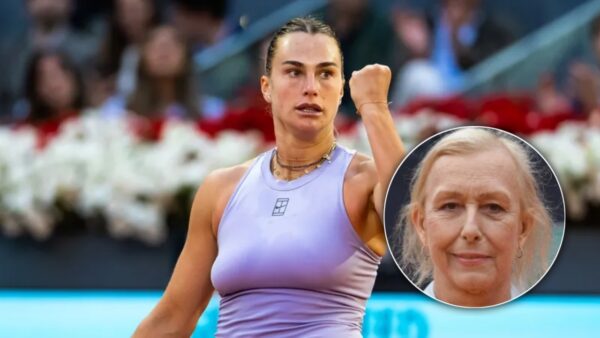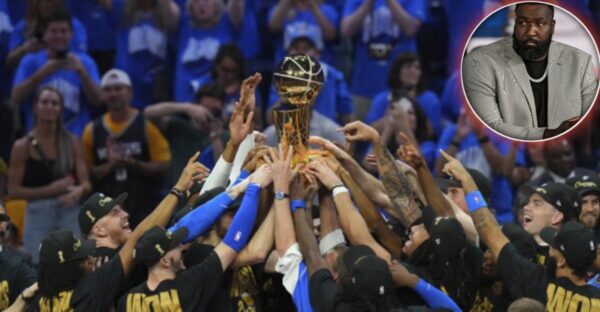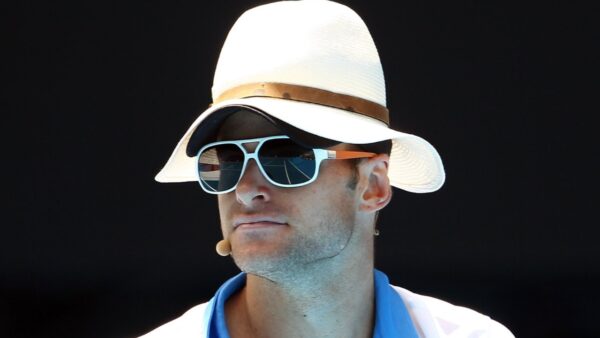The never-ending fight against his body, his devastating forehand and his kind heart: Juan Martin del Potro, the Gentle Giant of tennis, says goodbye
Juan Martin del Potro’s story teaches us how fragile life is and how strong a human being can be at the same time.
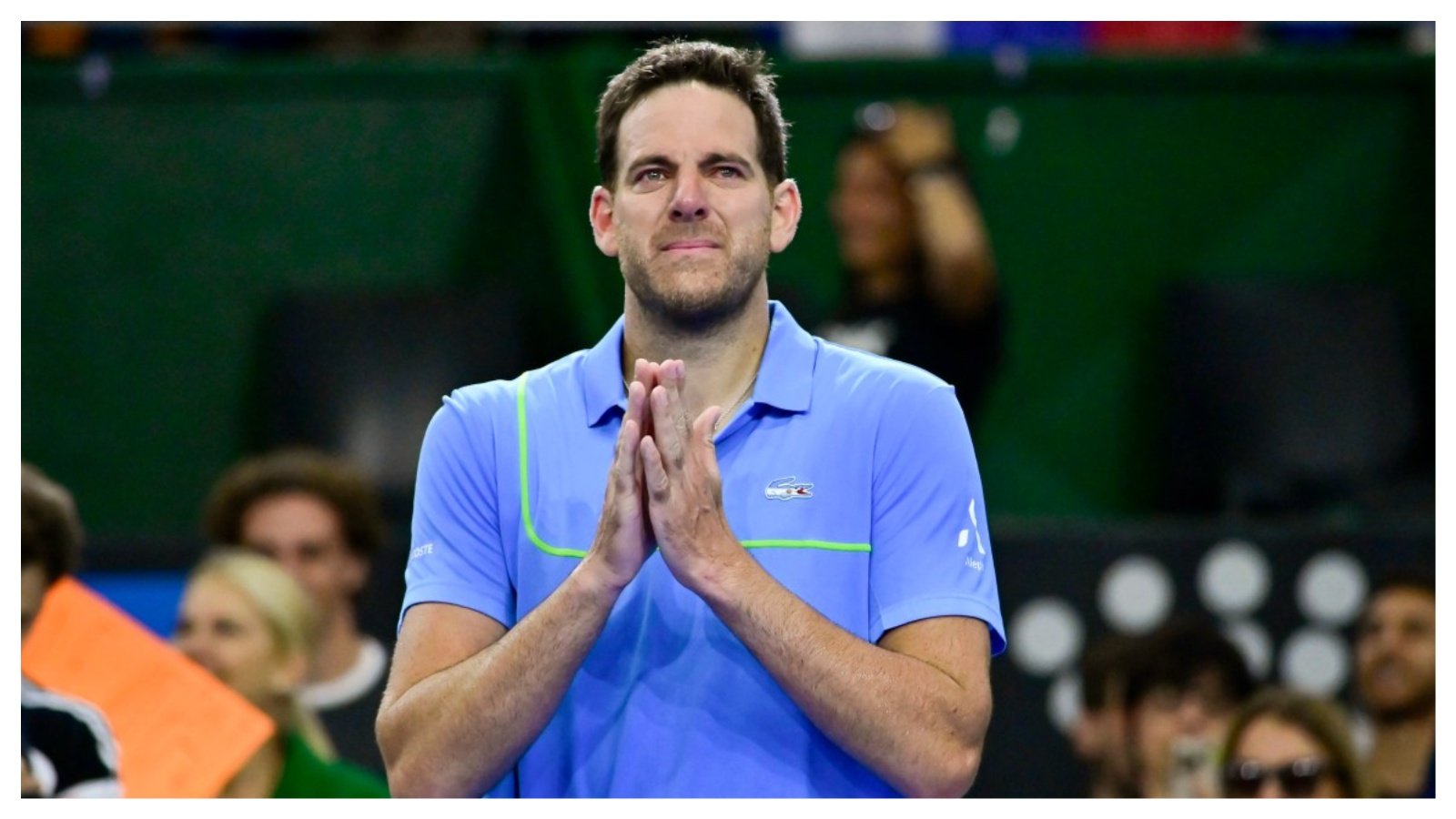
Juan Martin del Potro (via Sunday Times)
🔍 Explore this post with:
Last Sunday, the entire tennis world stopped for a moment and lived through one of its most emotional nights in recent history. In Buenos Aires, Juan Martin del Potro – although basically retired since 2022, if not 2019 – said his final goodbye to a sport which has loved in an immense way, and which has given him, through all the fans around the world, an incredible amount of love over his more than decennial career.
With none other than Novak Djokovic, the greatest tennis player of all time, who has been remarkably close to Delpo, especially in these final, and very difficult stages of his tennis journey.
An extraordinary event and a superb send-off not for the quality of tennis we have seen (we all know how del Potro’s knee injury makes it very difficult for him even in the most basic everyday activities), but because the emotions and all the energy coming from the Argentinian crowd have made this night something more than just special.
The highlights of Juan Martin del Potro’s career
But let’s start from the beginning and let’s write down the biggest moments in the Argentine’s career, because just citing the injuries would not made justice to his incredible talent and all his achievements. This 198-cm-tall guy coming from Tandil has always been a generational talent and it became clear to everybody when, at 19 years old, he managed to win 23 straight matches in the ATP Tour, capturing 4 consecutive titles across clay and hard courts in the 2008 summer: Stuttgart and Kitzbuhel in Europe, Los Angeles and Washington D.C. in the United States.
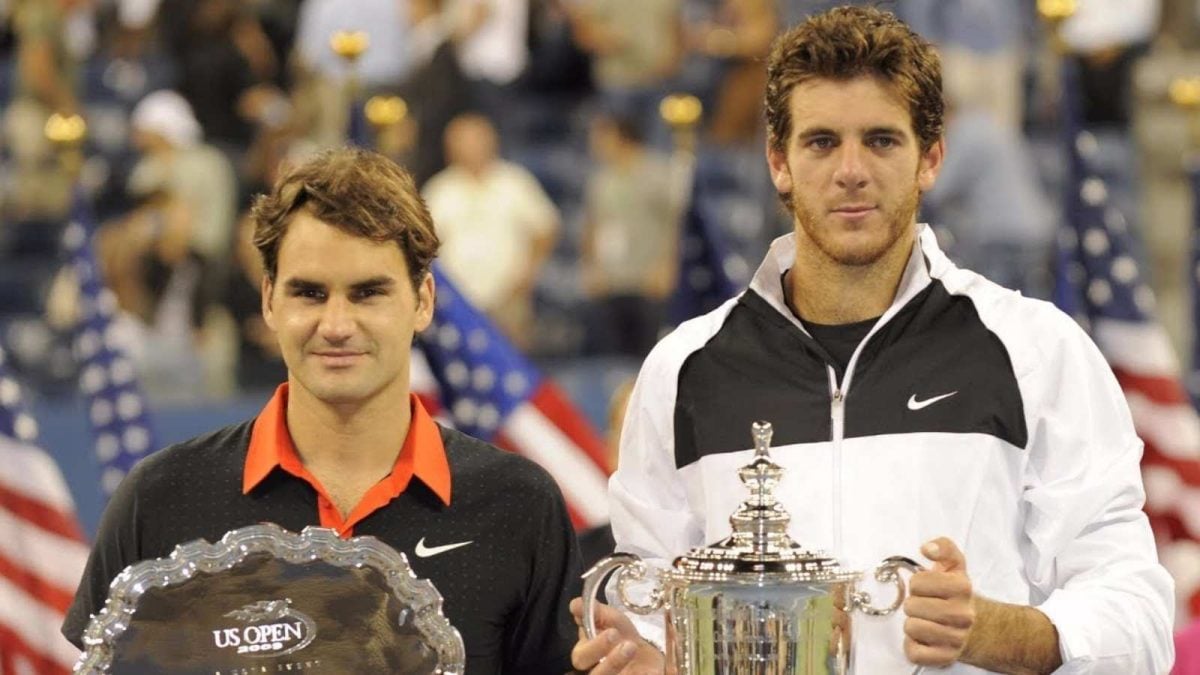
And I’ll tell you more, he dropped just two sets across these four tournaments. This fantastic streak – which is still the longest one scored by any player born after 1987 – ended in his maiden Grand Slam QF, where he narrowly lost against another generational talent of those years, Andy Murray.
Juan Martin del Potro closed that year inside the Top 10 and kept getting stronger in the following one, a 2009 season where he became – at just 20 years old – the first player able to defeat Rafael Nadal (6-2 6-2 6-2!!) and Roger Federer (who had won all his last 41 matches in New York) in the same Grand Slam event, the US Open, where he claimed the trophy.
Let’s be honest, the severe wrist injury he suffered at the beginning of the 2010 season, when he just had become the 4th best racket in the world, has been brutal for the development of his career. A player who had been able to do all those things at such a young age could have certainly tried to get at the level of the Big Four (Djokovic, Nadal, Federer, Murray), but we know well how having to start from scratch every time can diminish a lot your chances, and that’s what happened to him.
But, although not at the level expressed by the four aliens of this era, del Potro has never given up and has always overcome his physical challenges in order to return to being a protagonist in our beloved sport. At the London Olympics in 2012, the Argentine captured a fantastic bronze medal in singles, doing so in fantastic style.
In the semifinal, even if on the losing side, he has been part of the longest 3-set match in tennis history: in order to defeat him, Roger Federer had to stay on the court for almost five hours before closing it out with a 19-17 score in the deciding set. And his Olympic glory came again in Rio 2016, when he knocked out Rafael Nadal in the semifinal and won a fantastic silver medal for his country.
Final success and the life-changing knee injury
In November 2016 he helped Team Argentina to win its first ever Davis Cup, then in 2018 he claimed his first Masters 1000 title in Indian Wells and – nine years after the first time – came back to play a Grand Slam final, once again at the US Open.
Those results made him finally improve his career high ranking – that of 2010 –, becoming the new world number three only behind Rafael Nadal and Roger Federer. It could have been an extraordinary new phase for his career, but a nasty fall in Shanghai that year ruined all his plans. Del Potro could get cured and kept playing for a few months, but his knee was starting to tell him to stop. Another fall, which came at the Queen’s Club in 2019, meant the drastic end of his career.

There has been no way, over the years, to heal that knee and the worst part of this story is that all this not only affected del Potro’s career by basically closing it but is playing a big role in ruining the former World No. 3’s overall life quality.
It’s a never-ending nightmare. I was never able to climb stairs without pain. It hurts when I drive, it hurts many times when I go to sleep. My daily life is not what I would like it to be.
Juan Martin del Potro told La Nacion in an interview released just few days ago
After eight – yes, you read it right – knee surgeries, his tennis career is definitely ended but his fight against the pain unfortunately has not ended.
Juan Martin del Potro, one of the most beloved players to ever grace the court
What does this story tell us? First of all, how difficult it can be for tennis players suffering many injuries throughout their careers, especially when we are talking about a life-changing injury occurred to them at such an early age (del Potro is 36 now, which is not a lot outside sports).
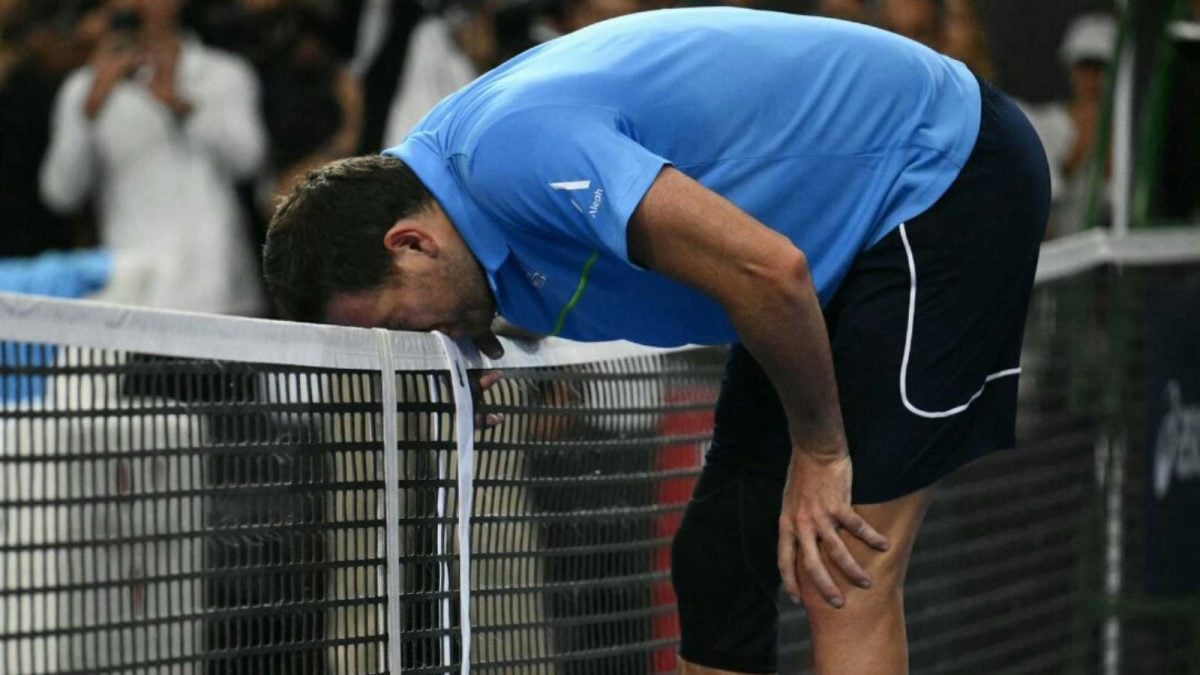
Then, this story of course tells us about a hero, Juan Martin del Potro, who has never given up in tennis and in life, who has always fought as hard as he could against his body to keep playing the sport he loves as much as possible. It also tells us about somebody who has probably been, thanks to his heartbreaking story but also to his remarkable sportsmanship and his great values, one of the most loved tennis players in the entire world.
Since he is a champion all of us can feel close to, he is relatable, his humanity has always appeared right after his devastating forehands, probably the strongest shot we have ever seen in this sport. He was forced to start at the bottom over and over again, seeking to climb up the hill and be back where he belonged.
He has often done it, and he is still doing it. Just stepping onto the tennis court last Sunday, considering all what he went through, I think it has been one of the biggest victories of his fantastic, although unlucky, career.


